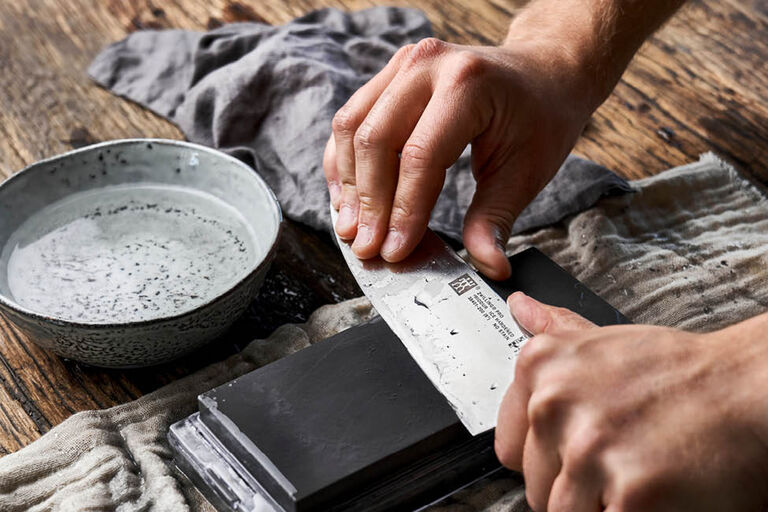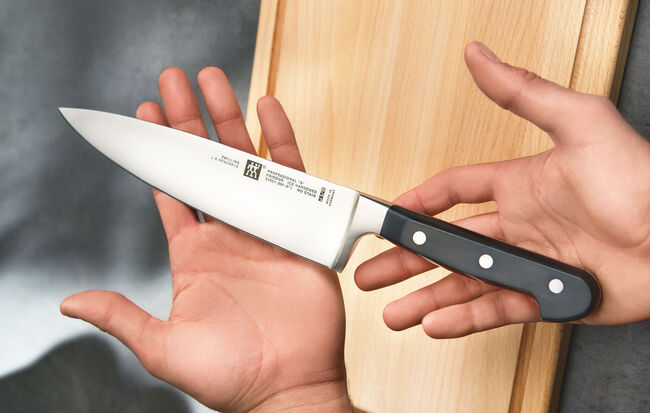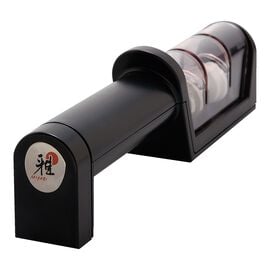HONING YOUR KNIFE
HONING WITH A HONING STEEL
A second option for honing your knife is a honing steel. If you want to use a steel, just make sure it has a higher hardness factor than the knife to be sharpened.
Sharpening Your Knife
If the cutting edge can no longer be renewed by honing, it must be reground to bring on a new edge. That means it’s time to re-sharpen your knife. We offer a number of different options when it comes to sharpening. Let’s take a look at them now.
SHARPENING with a sharpening stone
It may take a little practice to get it just right but sharpening on a stone is the number one sharpening technique chosen by culinary professionals. It will give you the ultimate control and precision over the edge you give your knife. Here’s a primer on how to use a sharpening stone.


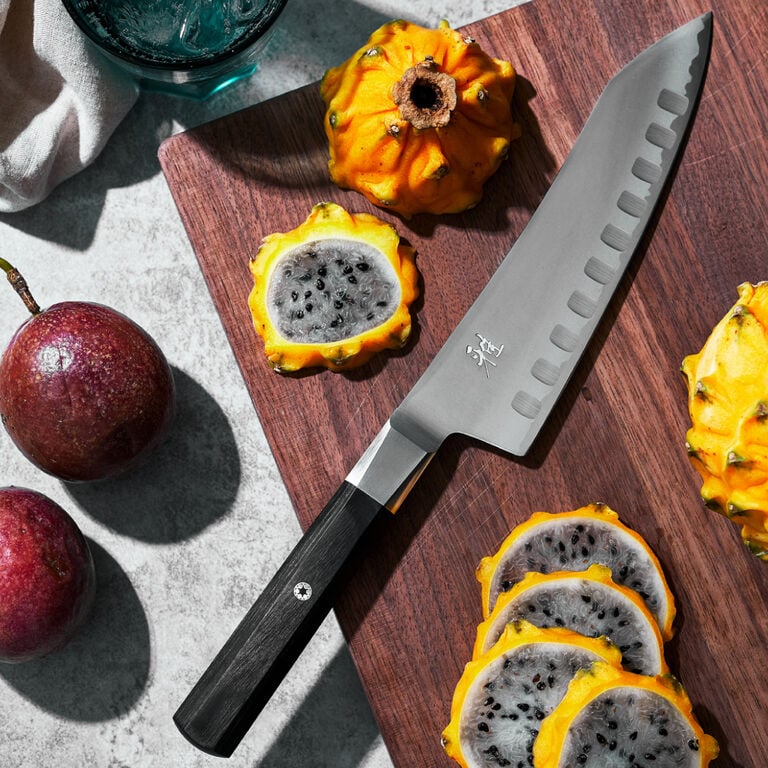
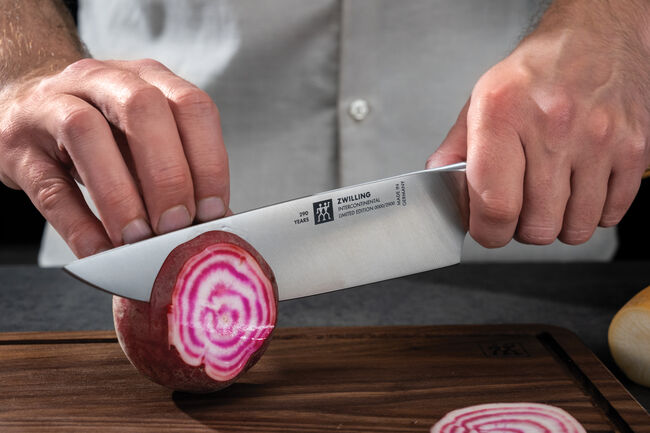
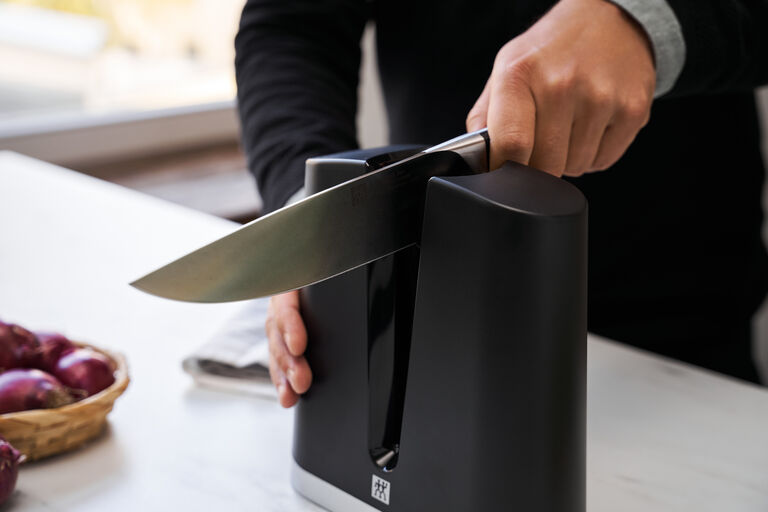
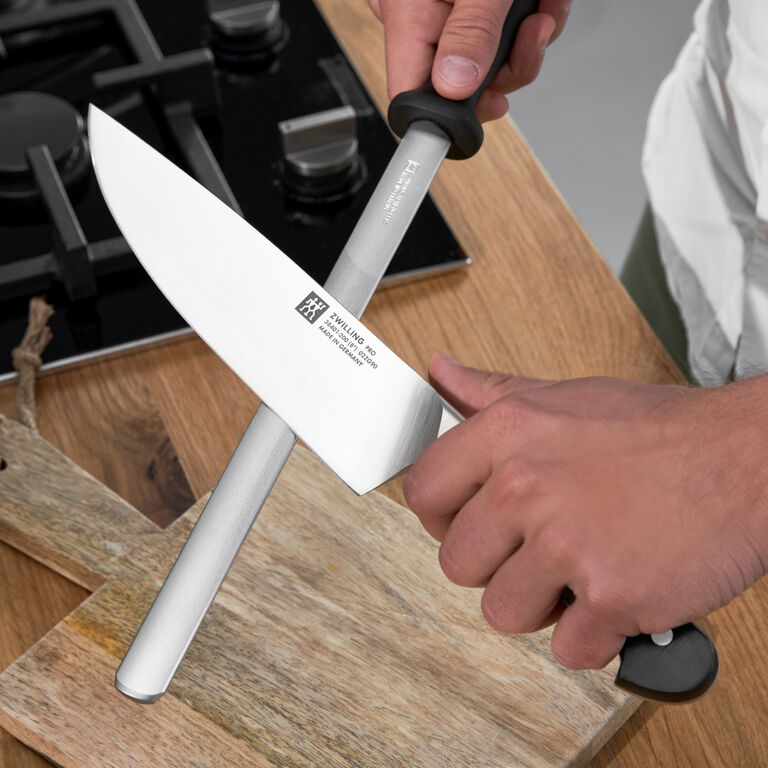
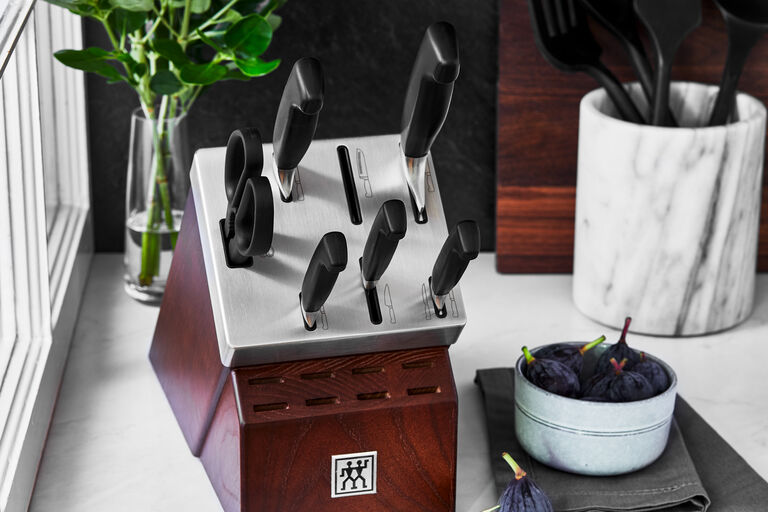
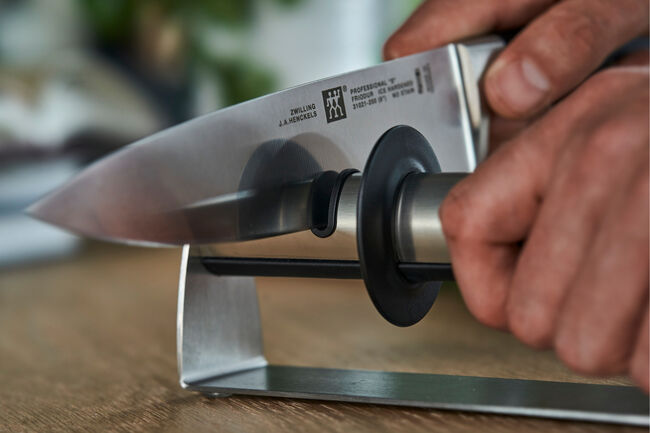

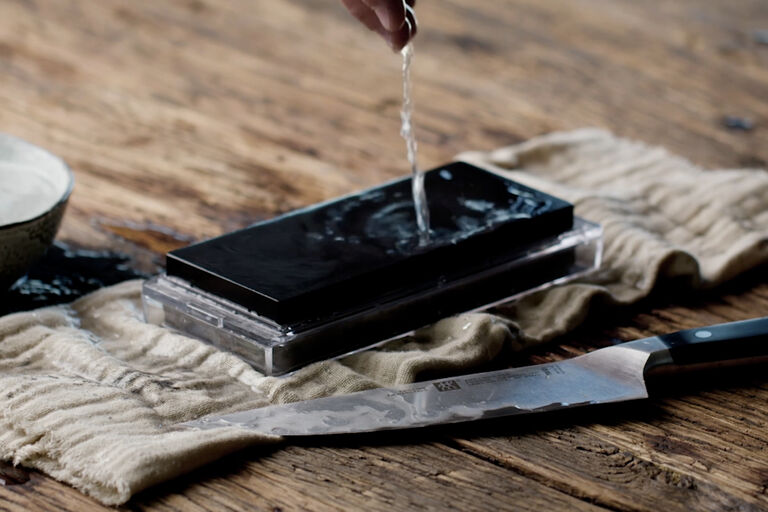
.png?sw=768)
